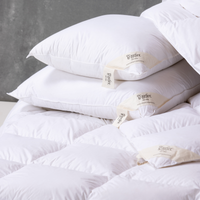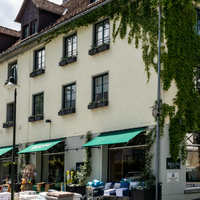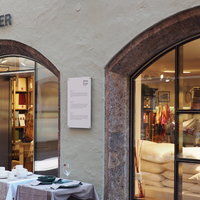Problems of globalization: 4 common myths & what you can do about them

Globalization - our first-hand experience
China, India, Turkey, Bangladesh & Co. are known as textile strongholds - unfortunately, they are also inevitably associated with buzzwords such as environmental pollution, forced labor, starvation wages or child labor. As a result of globalization, socially relevant issues have been outsourced by the majority of companies to the production countries and responsibility for them has been passed on. We have experienced a lot ourselves over the many years in this industry, which is why it quickly became clear to us:
WE WANT TO CHANGE SOMETHING.
As cotton fortunately still does not grow in Austria for climatic reasons and a large part of our product range is based on this natural fiber, we inevitably had to deal with the textile strongholds and the conditions prevailing there. After more than 20 years of working with our local partners, we have come to some important conclusions that we would like to share with you, as we see time and again that there is often a false or distorted image of production in and outside Europe.
1. myth of globalization: regional is always better
We also like to produce regionally, especially in order to support local structures. Unfortunately, however, "Made in Europe" does not always stand for quality and certainly not always for good working conditions. Only recently, for example, cases of forced labor, starvation wages and exploitation in England and Italy were uncovered - but the misconception that global production is always worse persists.
Our approach is that we see the world as our workbench and improve environmental and working conditions locally. If every company that is committed to fair working conditions in the textile strongholds suddenly decided to pull out of production, the pressure on workers would increase and their working situation would worsen immensely. After all, the fewer job opportunities there are, the less companies have to worry about morality, as the workers are forced to work for them anyway due to the lack of good alternatives.

2. myth of globalization: cotton products are natural products
Since cotton is a natural fibre, many people believe that they are bringing natural products into their homes when they buy cotton products - but most textiles are far from this: depending on the manufacturing process and chemicals used, the product ultimately has nothing to do with a natural product.
In addition, the textile industry is one of the most important economic sectors in the world, with cotton cultivation, with a total production of around 29 million tons per year, being one of the most polluting in the industry due to the use of pesticides and artificial fertilizers. In addition, a great deal of water is required for cultivation, which is why a balanced water balance is absolutely essential to prevent entire areas from drying out (see Aral Sea).
But there is another way: for us, the choice of where to source our cotton was absolutely crucial for precisely these reasons. In the end, we chose Denizli (Turkey) because cotton has been grown there in harmony with nature for centuries. As we offer a very wide range of organic cotton, we also protect the soil and prevent pollution from pesticides and the like.

3. myth of globalization: there is only black or white
Yes, we have had to learn that again and again over the years. Above all, we had to understand that not everything that we as Europeans feel is right from the outside also works within the country's structures or makes sense for the workers. A frightening real-life example that made us think for ourselves:
Child labour as an example of the problems of globalization
When the issue of child labour in the textile industry became known a few years ago, there was a huge outcry. Understandably, Europe demanded that a stop be put to this. The textile strongholds reacted and banned child laborers from the textile industry, but did not bother to tackle the fundamental problem of child labor:
Parents simply earn far too little and are therefore still dependent on the children's additional income.
As a result, there was and still is far too much child labor, albeit now in other and usually much harder industries such as road construction, etc. An improvement? Not really, as the structures of the country and the great poverty of the population unfortunately make it almost impossible to bring about any real change to the current situation. But at least it soothed the consciences in Europe...
This makes our approach all the more important: we campaign for fair wages, so-called living wages, which enable workers to live above the minimum subsistence level. Only if workers are paid enough can there be a change in the system that can ultimately protect children better, both directly and indirectly.

4. myth of globalization: there are perfect companies
Yes, there are some companies that are way ahead when it comes to sustainability and fair working conditions - we are one of them. For over 20 years, we have been working with our producers in Turkey and, together with companies such as the Global Organic Textile Standard, Cradle to Cradle Certified or the Fair Wear Foundation, we look for ways to improve the working conditions for our local workers and to produce holistically sustainable products from start to finish. We have already achieved a lot and are proud to have done so much good locally, but one thing is also clear to us: there is still a lot to do. But we will keep at it and continue to do our best to fight for fair working conditions and sustainable environmental conditions in the production countries.
 Fast delivery
Fast delivery Co2-neutral shipping
Co2-neutral shipping Sustainable production
Sustainable production








